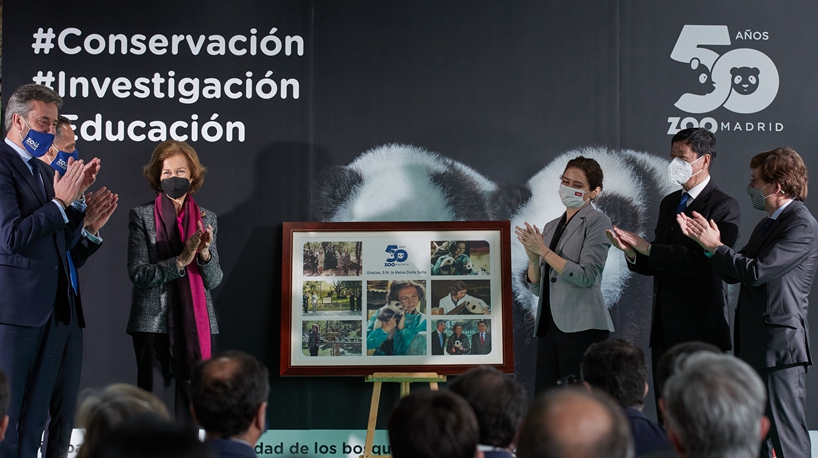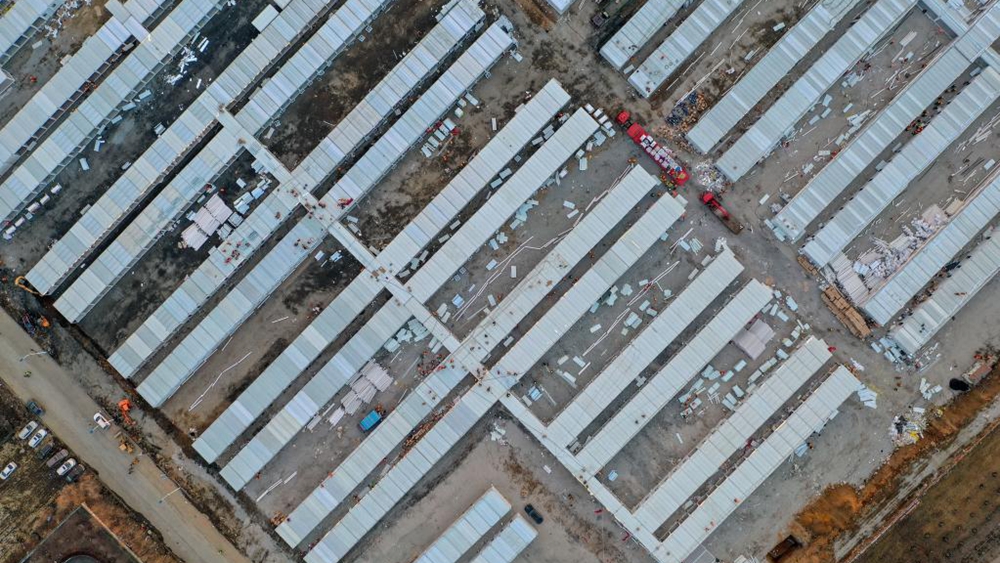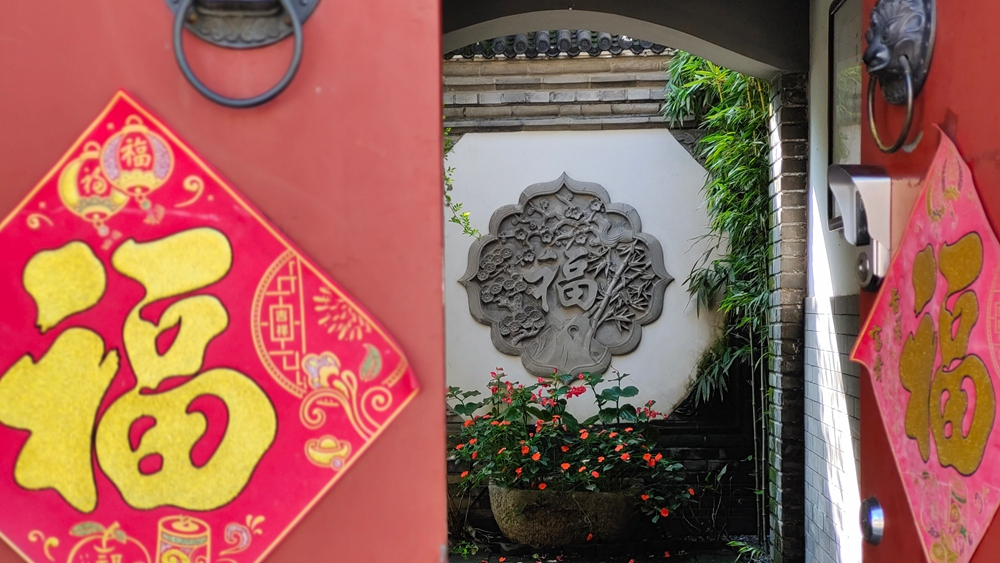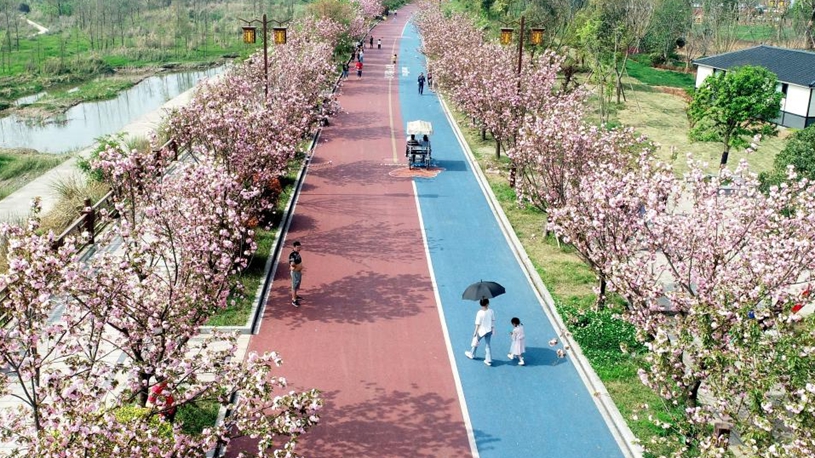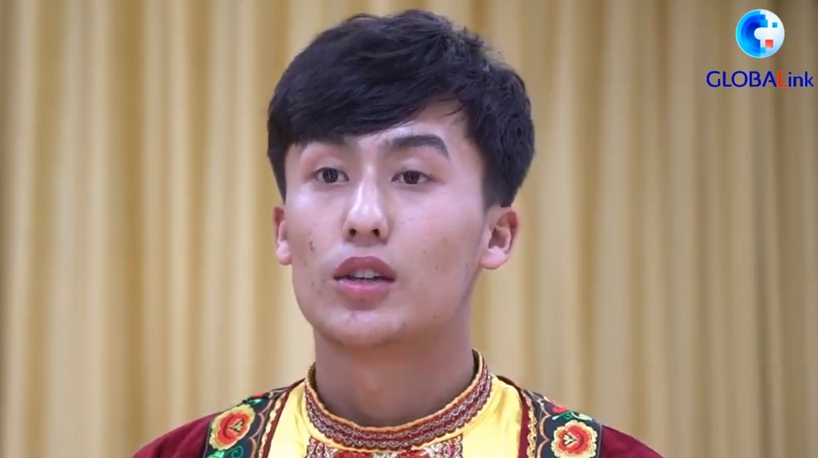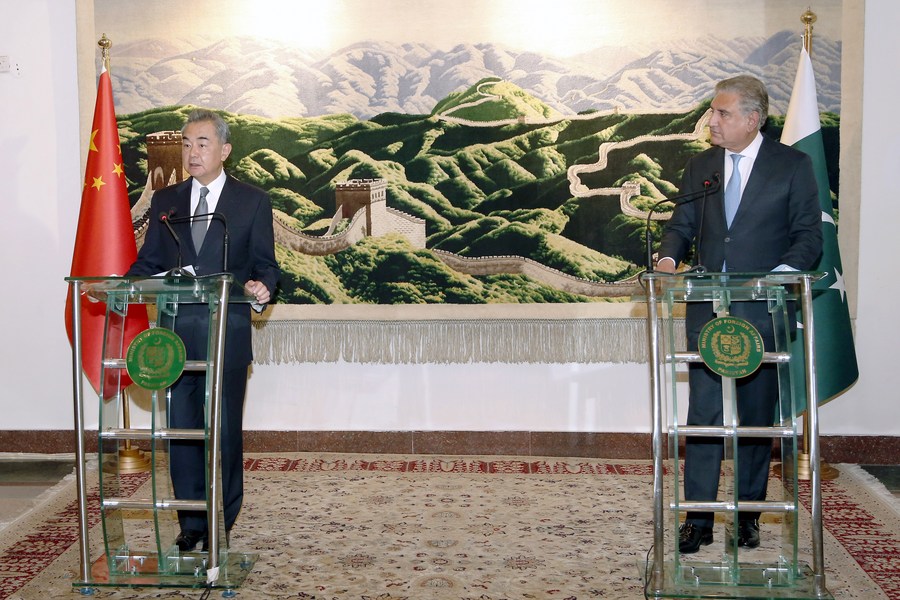
Chinese State Councilor and Foreign Minister Wang Yi (L) speaks at a joint press conference with Pakistani Foreign Minister Shah Mahmood Qureshi in Islamabad, Pakistan, on March 21, 2022. (Xinhua/Ahmad Kamal)
Chinese State Councilor and Foreign Minister Wang Yi arrived Monday in Islamabad, Pakistan to attend the 48th session of the Council of Foreign Ministers of the Organization of Islamic Cooperation (OIC) and to pay a visit to Pakistan.
ISLAMABAD, March 22 (Xinhua) -- Chinese State Councilor and Foreign Minister Wang Yi said here Monday that China and Pakistan are committed to enhancing their strategic coordination and pragmatic cooperation.
Speaking at a joint press conference with Pakistani Foreign Minister Shah Mahmood Qureshi, Wang said he is paying his first visit to Pakistan since the outbreak of the COVID-19 pandemic, and he has held extensive and in-depth talks with Qureshi on bilateral ties.
As the world is facing turbulence and challenges, Wang said China and Pakistan need to strengthen their strategic communication and join hands to build a closer China-Pakistan community of a shared future, so as to bring stability to regional peace and prosperity.
Wang proposed efforts to be made in the following four areas to further strengthen China-Pakistan ties.
First, giving firm support to each other. No matter what changes take place in the international situation and their respective countries, China will stick to its friendly policy toward Pakistan, firmly support the Pakistani people in taking a development path that fits their own national conditions, and support Pakistan in defending its sovereignty, independence and territorial integrity, Wang said.
It is hoped that various political parties in Pakistan will strengthen their cooperation and unity to ensure development and stability in the country, he said.
Second, accelerating common development and revitalization. China and Pakistan should enhance the synergy between their development strategies, construct the China-Pakistan Economic Corridor with high quality, and stay committed to advancing key cooperation projects and expand cooperation in green development, digitalization, poverty reduction, health and other fields, Wang noted.
China will support Pakistan in developing industries, strengthening commerce and revitalizing agriculture so as to achieve a more balanced, independent and sustainable development, Wang said.
Third, deepening counter-terrorism cooperation. China supports Pakistan in severely punishing the perpetrators of the Dasu terrorist attack, appreciates its efforts to strengthen the security of Chinese personnel and projects in Pakistan, and will, as always, help Pakistan improve its law enforcement and security capacity, Wang said.
Fourth, maintaining closer multilateral coordination. The two countries should strengthen coordination on international and regional issues such as Afghanistan and Ukraine, jointly practice true multilateralism, earnestly safeguard the basic norms governing international relations, oppose power politics, bullying and unilateral sanctions, and work to help the international order advance in a more just and reasonable direction, Wang said.
During the press conference, Wang also noted that it is the first time for him to attend, in his capacity as the Chinese foreign minister, the 48th session of the Council of Foreign Ministers of the Organization of Islamic Cooperation (OIC) to be held in Islamabad.
Wang said that China and the Islamic world have a strong desire to build partnerships for unity, justice and development.
He noted that his presence at the OIC event reflected the strong desire of China and the Islamic world to further deepen their cooperation, saying the theme of the OIC foreign ministers' meeting -- "Building Partnerships for Unity, Justice and Development" -- bears special significance under the current international circumstances.
China and the Islamic world both enjoy a profound history, seek similar values and share historic missions, Wang said, adding that China is ready to build partnerships with the Islamic countries for mutual support and mutual understanding.
The cooperation between China and the Islamic world is a key part of South-South cooperation, Wang said.
In the face of the centennial changes and the once-in-a-century pandemic, Wang said it's necessary for China and the Islamic world to forge a closer unity and a common position, speak with one voice, and safeguard their common interests.
Wang pointed out that the current world is far from tranquility, and the international system and the basic norms governing international relations have encountered grave challenges.
China is willing to work with the Islamic world to pursue multilateralism, safeguard sovereignty independence and national dignity of all states, uphold the purposes and principles of the UN Charter, and maintain fairness and justice in international relations, Wang said.
Underlining the huge potential and complementary advantages in the cooperation between China and the Islamic countries, Wang said China is ready to join hands with friends of the Islamic world to make due contributions to the world's economic recovery and growth.■

